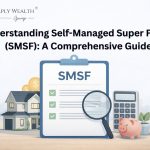Breaking News: Australia’s Non-Resident Buying Ban Takes Effect Today
Big changes are underway in the Australian property market! As of today, non-residents are officially banned from purchasing existing homes in Australia. This significant policy shift, aimed at easing housing affordability pressures, is expected to reshape the real estate landscape by increasing opportunities for local buyers and cooling down excessive foreign demand.
Why the Ban?
With soaring property prices making homeownership increasingly out of reach for many Australians, the government has introduced this measure to prioritize local buyers. Foreign investors have historically been attracted to Australia’s robust real estate market, leading to increased competition and, in some cases, price inflation in key urban centers. By restricting non-resident purchases, policymakers hope to create a more balanced and accessible market for Australian residents, particularly first-home buyers.
Impact on the Housing Market
For First-Home Buyers
This ban could be a game-changer for Australians struggling to enter the property market. With reduced competition from foreign investors, housing prices may stabilize or even decrease in certain areas, allowing first-home buyers better access to properties that were previously out of reach.
For years, many young Australians and families have faced bidding wars against cashed-up international buyers, especially in Sydney and Melbourne. The restriction on non-residents purchasing existing homes means that local buyers now stand a better chance of securing homes at more affordable prices.
For Investors
While the ban might reduce speculative foreign demand, local and resident investors will continue to play a significant role in the market. The shift may also encourage greater investment in new housing developments, as non-residents will still be permitted to buy newly built properties. This could lead to increased construction activity and more housing supply, benefiting renters and buyers alike.
Some experts suggest that the rental market may experience slight fluctuations as fewer foreign investors purchase properties to lease out. However, long-term local investors may see more opportunities to expand their portfolios without facing as much competition from overseas buyers.
For Property Prices
Experts predict that while the immediate effect of the ban may lead to a slight dip in prices, the long-term impact will depend on various factors, including interest rates, economic conditions, and housing supply levels. High-demand areas, particularly in major cities like Sydney and Melbourne, may see slower price growth, giving local buyers a better chance at securing properties.
Some regional and suburban areas that have attracted significant international investment in the past may experience short-term price corrections, while others may see sustained demand driven by local buyers and interstate migration.
Exceptions and Loopholes
While the ban applies to existing homes, foreign investors can still purchase new developments or off-the-plan properties. This is intended to encourage new housing supply, which remains a critical issue in Australia’s growing cities. Additionally, temporary residents in Australia may still buy property under specific conditions, but they will need to seek approval from the Foreign Investment Review Board (FIRB).
What Should Buyers and Investors Do Now?
For First-Home Buyers:
Now is the time to reassess your buying strategy. With less foreign competition, explore opportunities in areas that previously had high investor demand. Research suburbs with strong infrastructure growth, transport links, and lifestyle amenities that may now be more accessible.
For Investors:
Consider diversifying into new developments or emerging suburbs where demand remains strong. Look at rental yields and growth potential to make informed decisions. With government incentives available for new housing developments, investors may find lucrative opportunities in upcoming projects.
For Sellers:
If you were relying on foreign buyers, consider adjusting pricing strategies or targeting local demand. Marketing efforts should now focus on appealing to domestic buyers and emphasizing affordability, lifestyle benefits, and long-term investment potential.
Stay Informed and Make Smart Moves
The real estate market is always evolving, and policy changes like this can create both challenges and opportunities. Whether you’re looking to buy, sell, or invest, staying informed is crucial.
📚 Read the full article to learn more: https://tinyurl.com/3yffrdx8
📞 Need expert guidance? Call us at 1300 074 675
🌐 Visit: simplywealthgroup.com.au
📱 Follow @SimplyWealthGroup for real-time market updates!








